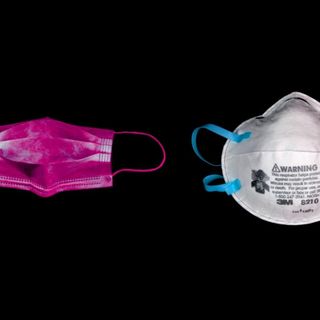Ah, stress. That inevitable, commonplace pandemic. Everyone’s stressed in the 21st century, and nobody seems to think it too much of a big deal, until that seemingly slight mental turbulence starts exerting a serious negative influence upon our health and daily functioning.
Stress is the body’s attempt to adapt to any unusual negative changes that it must face. For me, stress manifests in the way I eat. When I’m stressed to a certain extent, I need copious amounts of chicken-cheese momos, or a batch of spicy fries. Then, as my stress progresses to something worse, I can’t eat — no matter how hard my gut groans for food. Why do I eat when I’m stressed? And why can’t I eat when I become more stressed?
Apparently, I am not unique. People tend to overeat when they’re stressed in order to distract themselves from whatever is on their minds. And people stop eating when they’re stressed because they simply cannot take their minds off what’s stressing them, killing the need to do other things.
Related on The Swaddle:
Stress Is Contagious, but Here’s How We Can Avoid Infecting Each Other
According to Harvard Health, feeling stressed makes our brain send cues to our bodies that it thinks might help us deal with the threat we’ve recognized. This is done via the stress hormone cortisol, which makes us crave food — especially of the sugary, salty, fatty sort — because it helps stock up on energy to ‘fight’ whatever threat we’re dealing with. Increased stress also leads to a drop in metabolism, which can lead to rapid weight gain.
On the other hand, stress also stimulates the brain to secrete hormones like corticotropin-releasing factor (CRF), which activates the sympathetic nervous system that brings about the fight-or-flight response. Hormones like CRF are known to suppress appetite, decreasing how much or often we feel hungry, Dr. Kimbre Zahn, a family physician, told Shape. She adds, “Individuals with persistent stress or those affected by generalized anxiety may be more likely to have chronic elevations of these hormones, resulting in prolonged appetite suppression.” Often, stress can also lead to feeling nauseous, which also kills an individual’s appetite. Losing one’s appetite is particularly hard on the body, as increased cortisol leads to increased production of acid in the stomach. And if there’s nothing but acid in the stomach, the organ will develop ulcers.
In any case, either eating too much or not eating at all, especially when stressed, are particularly bad habits, as they aid to the body’s struggleto cope. To avoid stress eating, take refuge in other comforting behaviors rather than eating junk food — for example, eating healthy snacks and/or talking to a friend. As for a lack of appetite, what helps is to find foods that one can eat without feeling intense nausea. And drinking smoothies or milkshakes, which are easy to digest, will ensure the body has enough calories to keep it going through that turbulent period.




